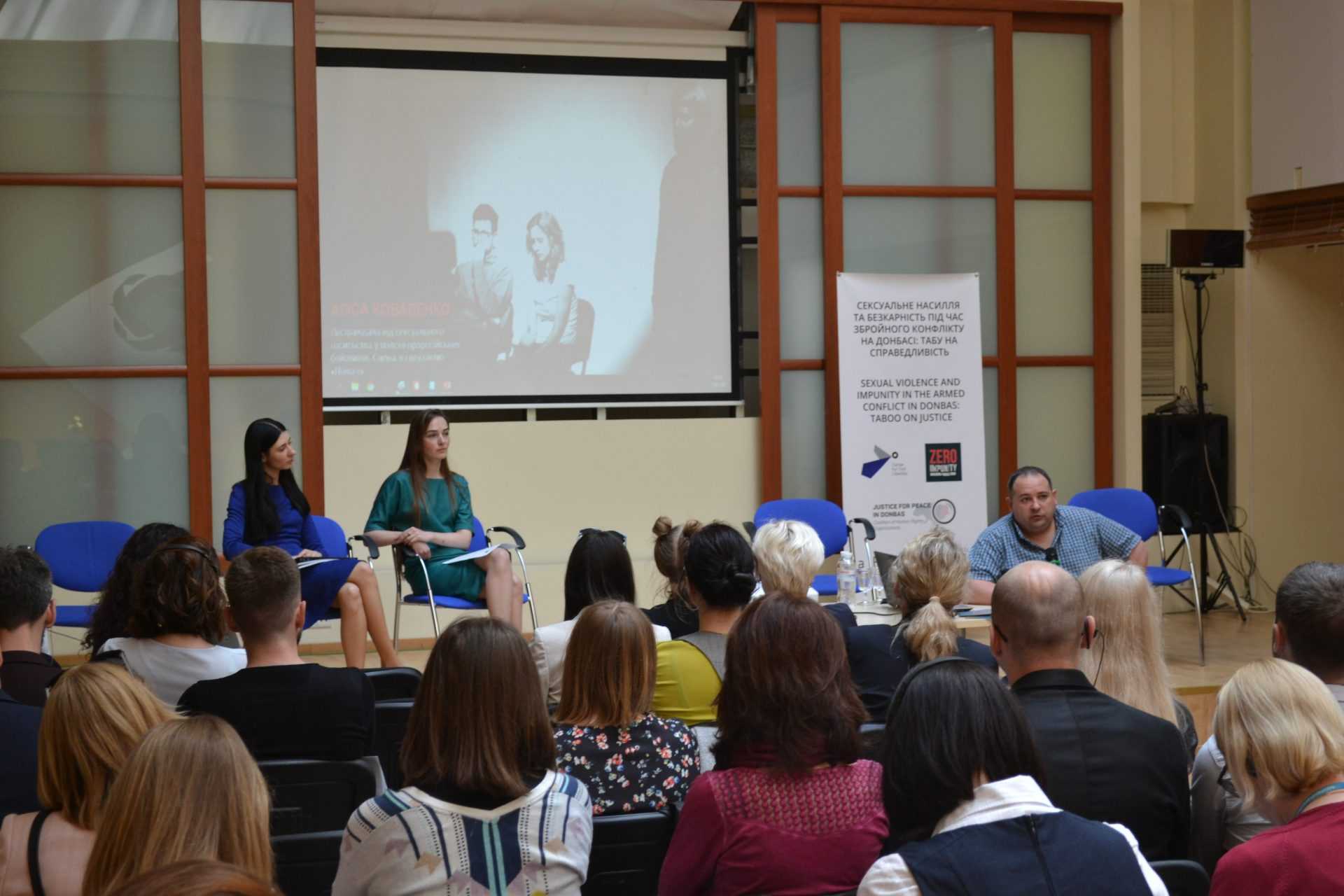Every 3rd person in the illegal detentions of Donbas suffered sexual violence, says Ukrainian human rights defenders

This is evidenced by research, presented at the roundtable “Sexual violence and impunity during the armed conflict in Donbas, the taboo on justice”, organized by the NGO platform “Human Rights Agenda” under the auspices of the Coalition “Justice for Peace in Donbas” in partnership with ZERO IMPUNITY international project .
“Sexual violence is one of the most hushed topics in the war in Donbas. It is difficult even to remember this, for people, who were released from captivity. Victims and witnesses of sexual violence almost do not believe in justice, albeit delayed in time. This is also due to the fact that in Ukraine the rule of law still does not meet the standards. Paradoxically, in the third year of the war, laws and practices have not adapted to the real conditions in order to investigate crimes committed during the armed conflict “– commented Oleksandra Matviychuk, chairwoman of the Center for Civil Liberties.
For several months, human rights organizations, which are members of the coalition “Justice for Peace in Donbas” interviewed victims and witnesses. They documented 162 cases of various forms of sexual violence. Every third person interviewed suffered sexual violence during the detention in illegal places of detention, set up by pro-Russian militants. Those who became witnessed such violence also completely justified can be considered victims.
Human rights activists also found facts of sexual violence or threats of violence allegedly suffered from the representatives of Ukrainian volunteer battalions and power structures.
“These figures give only an approximate idea of the scale of sexual violence in the conflict zone. This topic is extremely sensitive and not everyone dare to talk about their experiences or about what they have seen. At the same time, collected data indicate that sexual violence was deliberately used as a method of torture, psychological pressure and humiliation of prisoners and hostages ” – says Vladimir Shcherbachenko, project manager on documenting evidence of sexual abuse, head of East Center for Public Initiatives
Sexual and gender based violence during armed conflict can manifest itself in various forms – rape, forced sterilization, forced exposure, sexual threats, and torture with elements of sexual violence (beatings or electric shocks to the genital area), and so on.
“As with other human rights violations, our mission noted lack of accountability and prevailing impunity for sexual violence, which occurred in the context of the armed conflict. It requires effective investigation and survivor-centered response”, – said Fiona Fraser, chairman of the UN Monitoring Mission of the Human Rights in Ukraine.
In Ukraine, one of the significant obstacles to provide justice is the outdated Criminal Code of Ukraine. Yet, it does not criminalise crimes against humanity, and its provisions on war crimes do not fully meet the requirements of international criminal law and international humanitarian law. In particular,, domestic criminal law does not criminalise a significant number of possible forms of sexual and gender based violence. For example, it does not take into account the situation of forced consent when a person is afraid to oppose to have sex because of the previous behavior of the offender. This leads to an impunity gap and victims of sexual violence do not believe in justice, even when such justice is postponed.
“Regardless of the extent of sexual violence, especially in the context of the conflict, it is a serious violation of personal privacy. Such cases require immediate, effective investigation and comprehensive system of services for victims. Currently, the Government is not prepared to respond to such incidents because of gaps in legislation and legal practice. UN Human Rights Monitoring Mission believes that changes to the legislation and building the capacity of law enforcement agencies is an essential element to ensure the access of victims to justice, “– said Natalia Pylypiv, employee in UN Human Rights Monitoring Mission.
To help resolve this problem, a group of human rights defenders developed a draft law “On amendments to the Criminal Code of Ukraine to ensure its harmonization with international law.” It aims to enable the national justice system and law enforcement agencies to carry out investigations and prosecutions in accordance with international humanitarian law, international criminal law and customs.
“Criminal prosecution of acts that are crimes under international law as ordinary crimes is unacceptable, and sometimes – in principle- impossible. The adoption of the bill we prepared will ensure that Ukrainian law are in line with international standards related toon crimes against humanity, war crimes, crimes of aggression and genocide” – says Konstantin Zadoya, chairman of the experts working group of the “Human Rights agenda” platform that developed the draft law.
*According to the research “Gender and sexual violence related to the conflict” East Center for Public Initiatives” based on over 250 interviews with victims of human rights violations related to the conflict, as well as experts. https://jfp.org.ua/system/reports/files/92/uk/Unspoken-Pain-web.pdf

